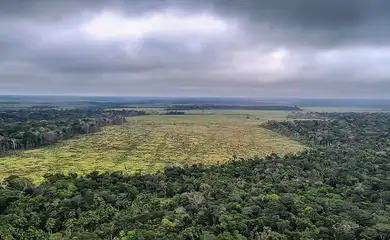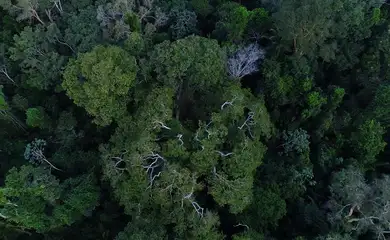Brazil´s Climate Observatory proposes 92% emission reduction by 2035

A study by the Climate Observatory network reveals that Brazil needs to cut greenhouse gas emissions by 92% by 2035 to make a fair contribution to the goal of limiting global warming to 1.5 degrees Celsius (ºC). This target is based on 2005 emissions of 2.4 billion net tons, reducing the annual limit to 200 million net tons.

The study considered the greenhouse gas load the atmosphere can still tolerate to limit global temperature rise to 1.5ºC, as well as Brazil's share of global emissions, factoring in the impact of land use changes within the country.
“It's a calculation of what the planet needs. It's a calculation made between what would be fair, given Brazil's history of setting [targets] in a Nationally Determined Contribution (NDC), and also what we can do looking at what we need to do to maintain 1.5ºC,” explains Márcio Astrini, executive secretary of the Climate Observatory.
The percentage was announced by the organization on Monday (Aug. 26) as part of its third contribution to Brazil's climate target proposal for the 30th UN Climate Change Conference (COP30) in Belém, Pará state. The Climate Observatory was the first civil society initiative to support Brazil's climate goals with studies in 2015 and made another contribution in 2020.
As a signatory to the Paris Agreement, Brazil is required to submit its Nationally Determined Contribution (NDC) by February 2025. This proposal should build upon the Global Stocktake (GST), which gathered information on the world's response to the climate crisis and was presented at COP28 in Dubai last year.
Brazil is the sixth-largest emitter of greenhouse gases. In 2023, it presented an NDC that set a ceiling of 1.3 billion net tons of emissions for 2025, representing a 48.4 percent reduction compared to 2005 levels. For 2030, the target is to limit emissions to 1.2 billion net tons, achieving a 53.1 percent reduction from 2005.
The collective targets submitted by all signatory countries to the Paris Agreement still fall short of the global goal to limit climate change. If current commitments are maintained, the planet is projected to warm by 3°C above pre-industrial levels.
“We are crafting this NDC for those who have lost their homes in the floods in Rio Grande do Sul state, for those currently suffering from fires across Brazil, and for those most vulnerable to heat waves. We are showing that there is a way for the country to make a contribution that is compatible with curbing the increase in these climatic extremes,” said Astrini.
To meet the Climate Observatory's proposed goal, researchers who contributed to the study emphasize that Brazil must pursue several key objectives. These include achieving zero deforestation by 2030, restoring 21 million hectares of native vegetation, combating land degradation, enhancing biome protection, transitioning to renewable energy, adopting low-emission agriculture practices, and improving waste management.
According to Astrini, the goal is to present the study in technical forums and apply pressure on public officials. “We will use these figures both within and outside the government to demonstrate that greater ambition is achievable,” he concludes.





